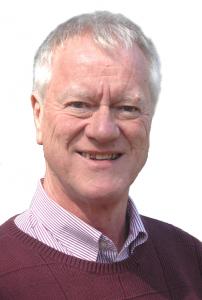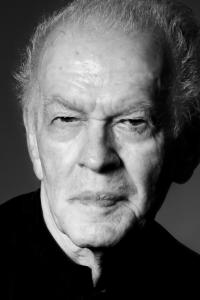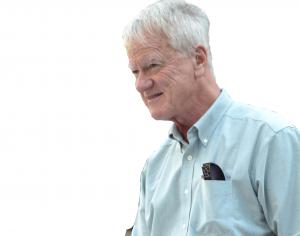Who can you spot?
Violence & nonviolence
Violence & nonviolence
Violence & nonviolence
I respond to the March editorial on Libya. It hints that the rebels had a choice of nonviolent resistance. Do we withdraw our support when that tactic is postponed, however temporarily?
The rebels were accompanied by NATO forces and defectors from Gaddafi, who a present hold some power. What choices did the rebels have?
To hope for an effective, nonviolent struggle without intervention from such people is looking for perfect answers in a highly-complex situation.
…
I was pleased to see in the last issue of Peace News the interview with Gene Sharp who has done much to promote an understanding of nonviolent action as a strategy for political and social change and even revolution.
However, even allowing for the fact that this was an interview, and that his answers were of necessity somewhat off the cuff, I find the reasons he gives for no longer considering himself a pacifist unconvincing.
He says that ‘maybe unjustly, or maybe not,…
We began with laughter, as George Lakey expressed his disbelief at the technology we were using. It was his first-ever internet video call: Skype had been installed on his computer only the day before, specifically for our interview.
Two hours later, with many questions still unasked, we were both on the verge of tears, as George haltingly recalled a transformational moment in his political and personal development, a process that stretches unbroken from the 1960s to his continuing…
The ‘Arab Spring’ has revived and broadened interest in the power of nonviolent popular action to challenge tyranny. However, the positive outcome promised by events in Tunisia has not been replicated elsewhere, and the slide of nonviolence into unequal violence in the face of violent repression, or civil war backed by foreign military intervention, has led to disillusionment and soul-searching.
Here in the UK at least, I believe we should stop insisting on ‘nonviolent revolution…
Progressive circles in the US have been furiously debating violence recently, after a forceful attack on the Black Bloc by radical journalist Chris Hedges. Hedges described ‘Black Bloc anarchists’ as ‘the cancer of the Occupy movement’: ‘obstructionist’ and ‘deeply intolerant but stupid’.
This brought an equally fierce riposte from radical anthropologist David Graeber, a long-time anarchist and Black Bloc participant, a co-founder of Occupy Wall Street and coauthor of what he…
Gene Sharp. PHOTO: Conor Doherty
Arguably the best-known advocate of nonviolence working today, through books such as 1993’s 'From Dictatorship to Democracy', Gene Sharp has influenced popular revolutions and revolts across the globe. He was interviewed by Ian Sinclair for PN.
Peace News: When and why did you first get interested in the serious study of nonviolent struggle?
Gene Sharp: Well, the world was in a bit of a mess [after the Second World War], and I began to learn…
A common argument in the leadup to the 2003 invasion of Iraq was that Saddam Hussein could only be toppled by a foreign invasion, that it was impossible for Iraqis themselves to remove such a brutal dictator.
An insightful and stirring look at the life and work of Gene Sharp, How To Start A Revolution demolishes this argument. Countering the widely accepted view of nonviolence as hopelessly naïve, the 84-year-old professor of political science has spent his life documenting the…
George Lakey
While many of us are working to ensure that the Occupy movement will have a lasting impact, it’s worthwhile to consider other countries where masses of people succeeded in nonviolently bringing about a high degree of democracy and economic justice. Sweden and Norway, for example, both experienced a major power shift in the 1930s after prolonged nonviolent struggle. They ‘fired’ the top 1% of people who set the direction for society and created the basis for something…
George Lakey gets arrested ...
George has stood up for radical nonviolence for decades. He persuaded PN to adopt the slogan ‘for nonviolent revolution’ in 1969. George was a co-founder of two important US radical institutions, the Movement for a New Society and Training for Change, he has led 1,500 workshops around the world.
George will be touring the UK and attending the entire five days of Peace News Summer Camp (26-30 July), where he will lead several sessions.
To be kept…
On 5 January, Peter Flanagan, 59, who killed a man who had broken into his house in Salford, Manchester, gave evidence at the trial of the other three burglars. In a witness statement, Flanagan described how the men threatened him with a machete while they ransacked his house. A member of the gang swung the machete at him, and a struggle ensued. In the course of the struggle, Flanagan jabbed John Bennell, 27, with the machete, before the four burglars ran from the house. Bennell collapsed…
"This book", says Tim Gee at the start of the first chapter, "will make a bold claim. That a single idea helps explain why social movements past and present have succeeded, partially succeeded, or failed. Strategically applied, it has helped win campaigns, secure human rights, stop wars and even bring down governments."
The central idea is Counterpower, which he describes as "the resistance of the oppressed". There are three types of Counterpower: Idea Counterpower which challenges…
Palestinians continue their weekly nonviolent protests against the illegal Israeli separation wall in the occupied West Bank territory. Israeli soldiers fired tear gas and sound bombs at villagers and international supporters protesting against the wall in the central West Bank towns of Bilíin, Nilin and al Nabi Saleh.
An anti-wall protest in the southern West Bank village of Ma'ssara was assaulted with rifle butts and batons by the Israel defence force.
On 15 November, six Palestinians took part in an anti-discrimination day of ìFreedom Ridesî called by the Popular Struggle Committee. They were arrested after boarding what are in effect ìJews onlyî buses through the occupied West Bank and East Jerusalem. Two observers were also arrested.
The buses, operated by companies including Veolia, often subsidised by the Israeli state, connect Jewish settlements to each other and to cities in Israel. It is not officially forbidden for…
For seven years the villagers of Bil’in in the Palestinian West Bank have resisted the separation wall that has cut them off from a large part of their lands, in particular holding a weekly march to the wall after Friday prayers .
On 1 July, the villagers marched in celebration. Two days earlier they had regained access to more of their land through the completion of the wall rerouting ordered in 2007 by the Israeli high court which had pronounced that it was “not convinced that it is…





